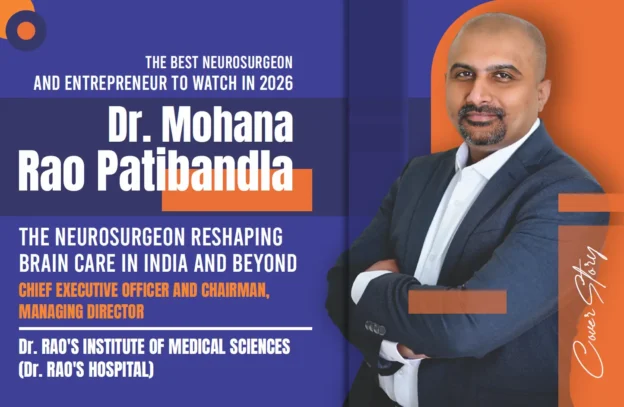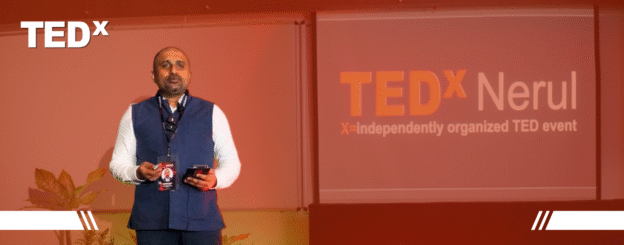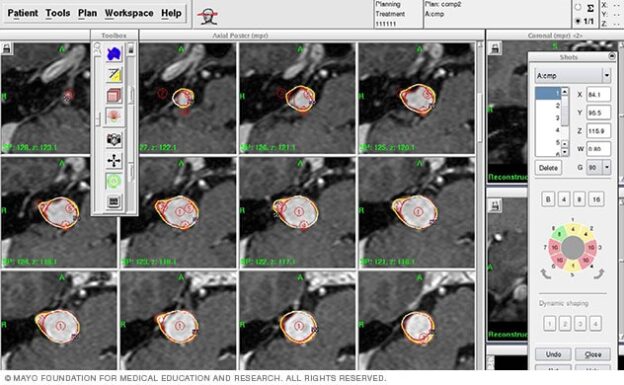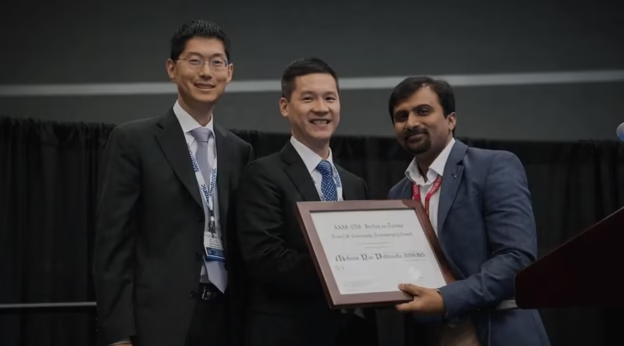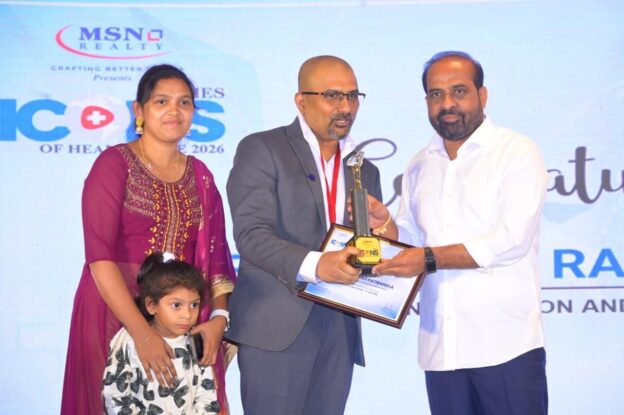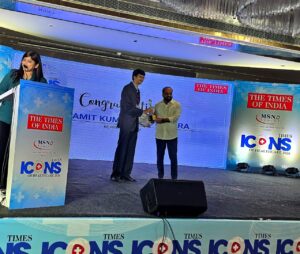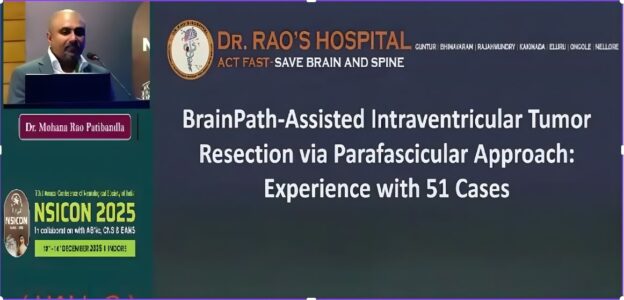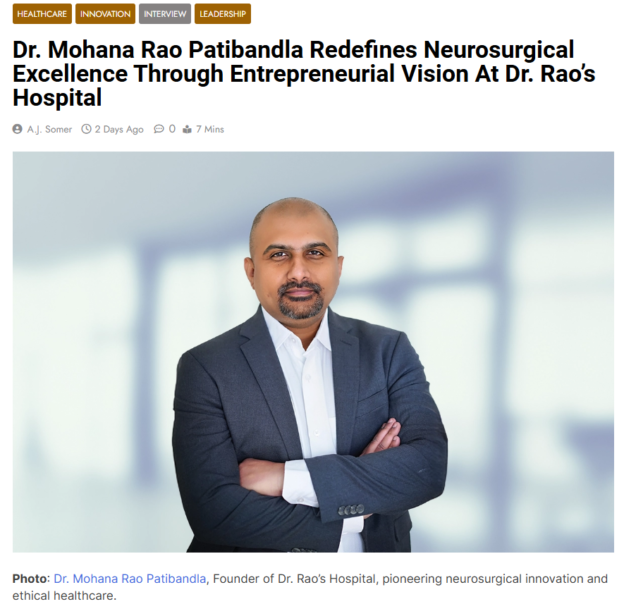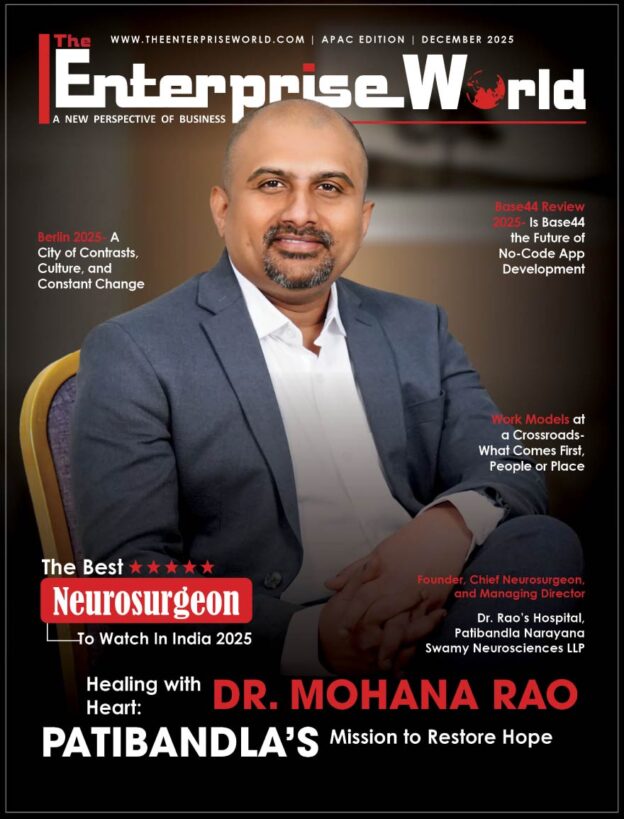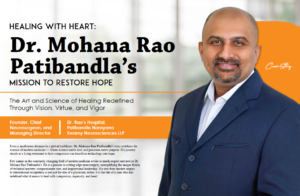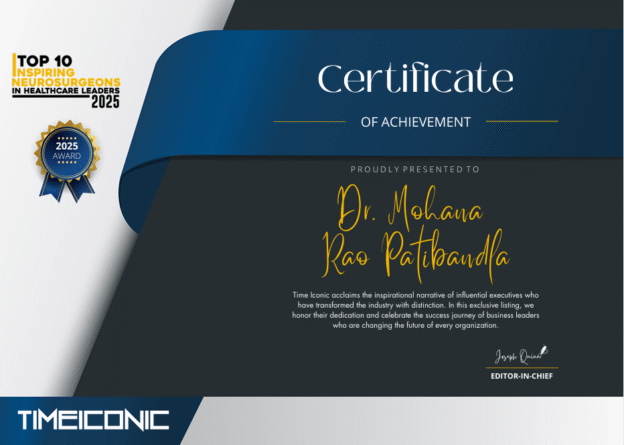EN TIMES Recognizes Dr. Mohana Rao Patibandla Among Influential Healthcare Leaders 2026
Published: February 2026 | Dr. Rao’s Hospital, Guntur
International business and healthcare publication EN TIMES has recognized Dr. Mohana Rao Patibandla among the “Most Influential Healthcare Leaders 2026,” highlighting his contributions to advancing minimally invasive neurosurgery and strengthening independent neuroscience infrastructure in India.
This recognition reflects not only individual achievement, but also the growing role of advanced, technology-driven neurosurgical centers outside metropolitan cities.
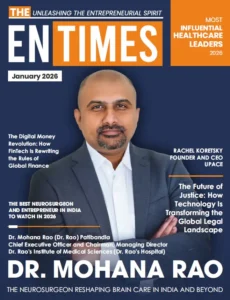
Dr. Mohana Rao Patibandla, neurosurgeon and Founder of Dr. Rao’s Institute of Medical Sciences (Dr. Rao’s Hospital), featured in EN TIMES 2026 for leadership in minimally invasive brain and spine surgery in India.
Addressing India’s Growing Neurological Disease Burden
Neurological disorders are among the leading causes of disability and mortality worldwide. According to findings from the
Global Burden of Disease (GBD) Study, stroke and other neurological conditions contribute significantly to India’s disease burden.
As life expectancy increases and diagnostic capabilities improve, the demand for advanced brain and spine care continues to grow across Andhra Pradesh and neighboring states.
At Dr. Rao’s Institute of Medical Sciences (Dr. Rao’s Hospital), our mission has been clear: bring world-class neurology and neurosurgery care closer to patients.
Expanding Advanced Neurosurgical Access in Andhra Pradesh
Historically, complex neurosurgical procedures required patients to travel to metro cities. Dr. Rao’s Hospital was established to decentralize this access and create a dedicated neuroscience center in Guntur.
- Minimally Invasive Brain Surgery
- Advanced Spine Surgery
- Endovascular Neurosurgery
- Epilepsy Surgery
- Pediatric Neurosurgery
Over the years, thousands of patients from Andhra Pradesh and neighboring regions have received advanced neurosurgical care at our center, reducing the need for outbound referrals.
Advancing Minimally Invasive Brain and Spine Surgery
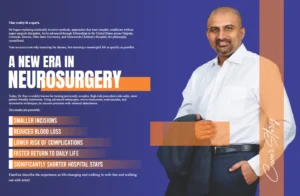
Dr. Mohana Rao Patibandla featured in EN TIMES 2026 highlighting a new era in minimally invasive neurosurgery and advancements in brain and spine surgery in India.
Dr. Mohana Rao Patibandla has undergone advanced subspecialty training in India and the United States across:
- Minimally invasive skull base surgery
- Pediatric neurosurgery
- Neuro-oncology
- Functional and stereotactic radiosurgery
- Endovascular and cerebrovascular neurosurgery
Modern minimally invasive techniques allow:
- Smaller incisions
- Reduced blood loss
- Lower complication risk
- Shorter hospital stays
- Faster recovery
To learn more, visit our
Brain Tumor Surgery page.
Integrating Technology with Ethical Clinical Governance
At Dr. Rao’s Hospital, technology is integrated with clinical responsibility. Advanced imaging systems, neuronavigation platforms, and precision-guided surgical tools support safer and more effective procedures.
“Technology must enhance clinical judgment—not replace it.”
This philosophy reinforces our commitment to ethical, patient-centered care.
Education, Mentorship, and Public Awareness
Beyond surgery, Dr. Rao actively contributes to medical education and awareness initiatives. As a TEDx speaker and mentor, he emphasizes early diagnosis and combating misinformation.
Learn more about his journey on our
About Dr. Mohana Rao Patibandla page.
Strengthening India’s Neuroscience Infrastructure
India’s healthcare ecosystem is undergoing rapid modernization. Independent specialty centers are playing a critical role in expanding tertiary care access beyond metro cities.
The EN TIMES recognition highlights the growing importance of decentralized neuroscience infrastructure and technology-integrated surgical excellence.
Dr. Rao’s Hospital remains committed to:
- Expanding minimally invasive neurosurgical services
- Strengthening training programs
- Enhancing advanced surgical planning technologies
- Serving patients across Andhra Pradesh and beyond
About Dr. Rao’s Hospital
Dr. Rao’s Institute of Medical Sciences (Dr. Rao’s Hospital) is a leading neurology, neurosurgery, and spine surgery center located in Guntur, Andhra Pradesh.
12-19-67, Old Bank Road, Kothapet
Opposite Sravani Hospital
Guntur, Andhra Pradesh – 522001
Phone: +91 90100 56444
Email: info@drraoshospitals.com
Website: https://drraoshospitals.com
People Also Ask (PAA)
Who is Dr. Mohana Rao Patibandla?
Dr. Mohana Rao Patibandla is a neurosurgeon based in Guntur, Andhra Pradesh, and the Founder of Dr. Rao’s Institute of Medical Sciences (Dr. Rao’s Hospital). He is recognized for advancing minimally invasive brain and spine surgery and strengthening independent neuroscience infrastructure in India.
Why was Dr. Mohana Rao Patibandla recognized by EN TIMES?
EN TIMES recognized Dr. Mohana Rao Patibandla among the Most Influential Healthcare Leaders 2026 for his contributions to minimally invasive neurosurgery, technology-integrated surgical care, and expanding advanced neuroscience services beyond metropolitan cities.
What is minimally invasive neurosurgery?
Minimally invasive neurosurgery involves performing brain and spine procedures using smaller incisions and advanced imaging guidance. This approach reduces blood loss, lowers complication risk, shortens hospital stays, and promotes faster recovery compared to traditional open surgery.
Where is Dr. Rao’s Hospital located?
Dr. Rao’s Hospital is located at 12-19-67, Old Bank Road, Kothapet, Opposite Sravani Hospital, Guntur, Andhra Pradesh, India. It is a dedicated neurology, neurosurgery, and spine surgery center serving patients across Andhra Pradesh and neighboring states.
What services are offered at Dr. Rao’s Hospital?
Dr. Rao’s Hospital offers minimally invasive brain surgery, advanced spine surgery, endovascular neurosurgery, epilepsy surgery, pediatric neurosurgery, and treatment for complex brain tumors and neurological disorders.
Why is decentralized neuroscience care important in India?
Decentralized neuroscience care reduces the need for patients to travel to metropolitan cities for complex brain and spine procedures. It strengthens regional healthcare capacity, improves access to advanced treatment, and supports faster emergency response for neurological conditions.
Best Neurosurgeon in Guntur – Frequently Asked Questions
Who is considered the best neurosurgeon in Guntur?
Dr. Mohana Rao Patibandla is widely recognized as one of the leading neurosurgeons in Guntur for his expertise in minimally invasive brain and spine surgery. He is the Founder of Dr. Rao’s Institute of Medical Sciences (Dr. Rao’s Hospital) and has undergone advanced training in India and the United States across multiple neurosurgical subspecialties.
Why do patients choose Dr. Mohana Rao Patibandla in Guntur?
Patients choose Dr. Mohana Rao Patibandla for his experience in complex brain tumors, spine disorders, epilepsy surgery, pediatric neurosurgery, and endovascular procedures. His approach emphasizes minimally invasive techniques, reduced complications, shorter hospital stays, and faster recovery.
What makes Dr. Rao’s Hospital one of the leading neuroscience centers in Guntur?
Dr. Rao’s Hospital is a dedicated neurology, neurosurgery, and spine surgery center equipped with advanced imaging systems, neuronavigation technology, and minimally invasive surgical platforms. The hospital focuses on precision-based treatment, ethical care, and patient-centered recovery protocols.
Does Dr. Mohana Rao perform minimally invasive brain surgery in Guntur?
Yes, Dr. Mohana Rao Patibandla specializes in minimally invasive brain and spine surgery. These procedures use smaller incisions and advanced surgical guidance systems to reduce blood loss, minimize complications, and promote faster healing compared to traditional open surgery.
Where is Dr. Rao’s Hospital located in Guntur?
Dr. Rao’s Hospital is located at 12-19-67, Old Bank Road, Kothapet, Opposite Sravani Hospital, Guntur, Andhra Pradesh. The hospital serves patients from across Andhra Pradesh and neighboring states.
How can I consult the best neurosurgeon in Guntur?
You can schedule an appointment with Dr. Mohana Rao Patibandla by calling +91 90100 56444 or visiting the official website at https://drraoshospitals.com. Early consultation is recommended for symptoms such as severe headaches, seizures, weakness, spine pain, or neurological deficits.

